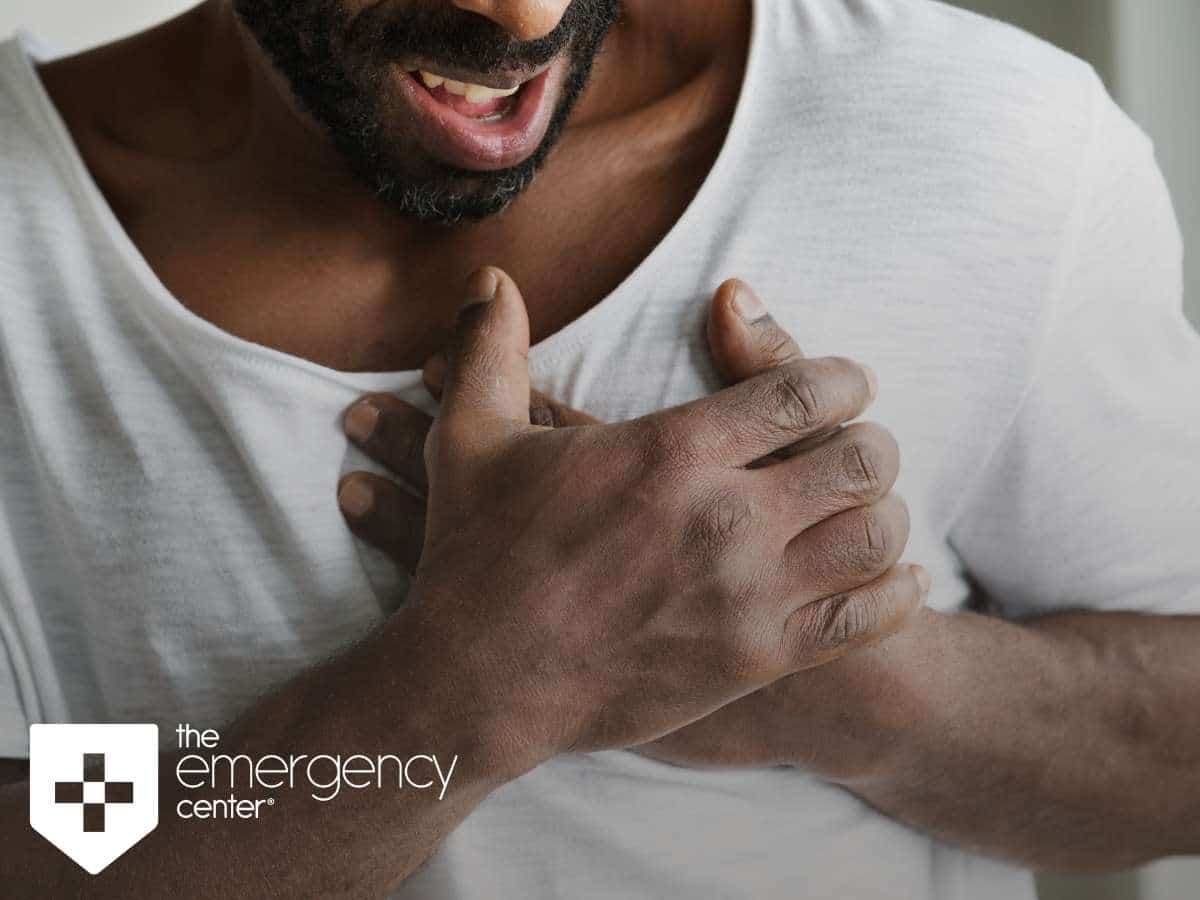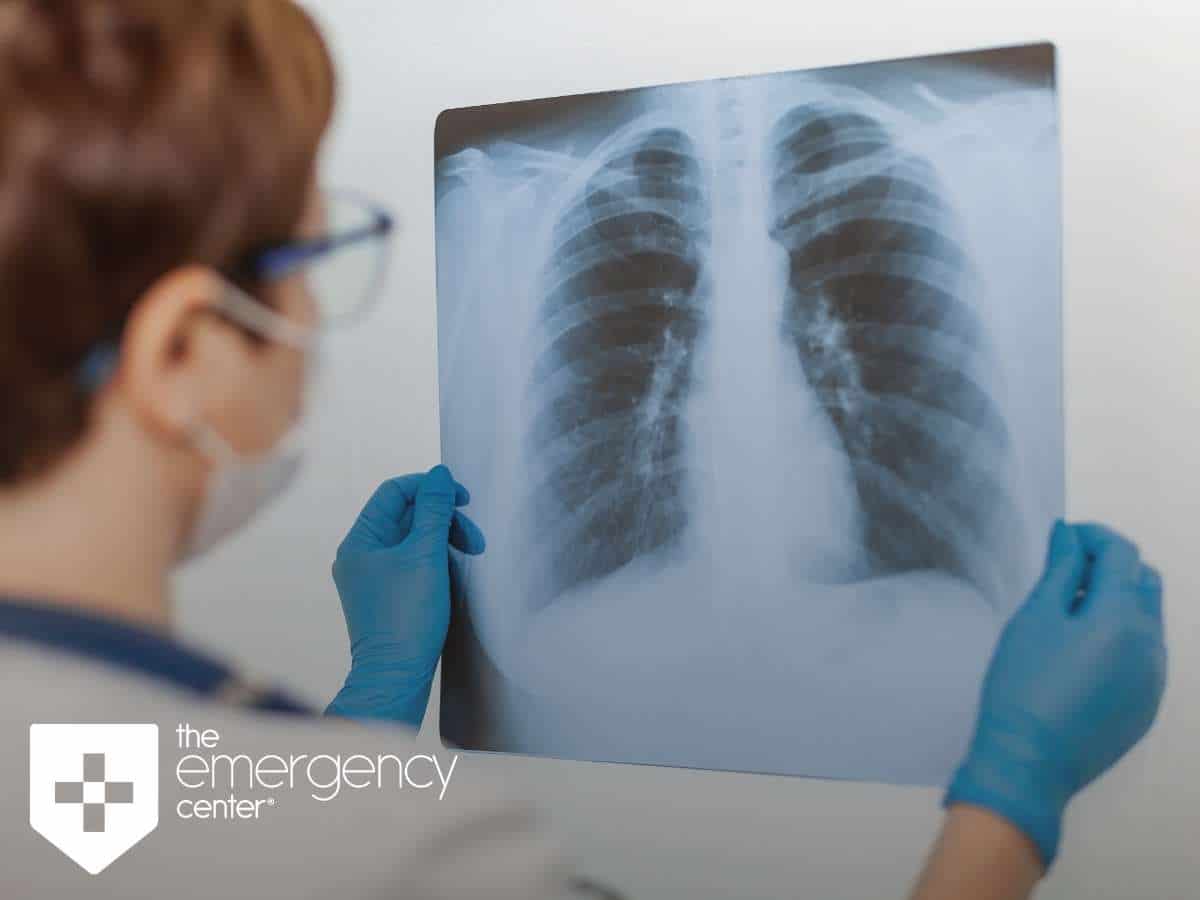What Health Problems Are Causing Your Chest Pain?
How Do I Know If Chest Pain Is Heart Or Lung Related?
There are many health problems that cause chest pain. Do you know what is causing yours? If you are experiencing this symptom, you should not ignore it. A good rule of thumb is to seek immediate medical attention if you feel any new or unexplained chest pain. While not all pain is indicative of an emergency condition, there is often no way to know without visiting a physician.
Chest pain is attributed to both heart related and to non-cardiac related problems. Read on to see what health problems could be causing your chest pain.

Heart Problems Related To Chest Pain
Heart related health problems that cause chest pain may include: Coronary Artery Disease, Myocardial Infarction (Heart Attack), Myocarditis, Pericarditis, Hypertrophic Cardiomyopathy, Mitral Valve Prolapse, and Coronary Artery Disease.
Coronary Artery Disease (CAD)
CAD is a blockage in the heart blood vessels that reduces blood flow and oxygen to the heart muscle itself. This can cause pain known as angina, which can be relieved with rest. While CAD does not cause permanent damage to the heart, it does imply that you are a candidate for a heart attack sometime in the future. CAD is caused by the buildup of plaque in the arteries. This process, called atherosclerosis, happens when substances like cholesterol and fat form a hard coating on the artery walls. These deposits narrow the arteries and make it more difficult for blood to flow through. Symptoms of CAD may include the following: Chest pain (angina); (pain may spread to arm, shoulder, jaw or back); Pressure or squeezing sensation, shortness of breath, palpitations, faster heartbeat, weakness or dizziness, nausea, and sweating.
Myocardial Infarction (Heart Attack)
A heart attack happens when there is a reduction in blood flow through heart blood vessels causing the death of heart muscle cells. While the most common symptom of a heart attack is severe, crushing chest pain in the center or left side of chest, other symptoms may include: sweating, nausea, shortness of breath, and severe weakness. The causes of a heart attack vary depending on the underlying cause and age of the patient. Some common factors that can cause a heart attack include: High blood pressure, high cholesterol, abdominal obesity, gum disease, diabetes, stress, smoking, or sedentary lifestyle.
Myocarditis
Myocarditis is inflammation of the heart muscle without any blockage. Myocarditis is most commonly caused by viral infections, bacterial infections, fungal and parasitic Infections, certain chemicals, allergic reactions to medications or toxins, and lyme disease. Symptoms of myocarditis include chest pain, fever, fatigue, fast heartbeat, and trouble breathing.
If you are diagnosed with myocarditis , your emergency physician may recommend medications to treat your symptoms, as well as lifestyle changes such as quitting smoking, managing stress levels, and making dietary changes. In some cases, surgery or other procedures may be necessary. While myocarditis can be a serious condition, it is often treatable and manageable with the right care and support.
Pericarditis
Pericarditis is an inflammation or infection of the sac around the heart. It can be caused by an infection, trauma, cancer, or a reaction to certain medications. Other common causes include heart surgery, tumors, radiation, autoimmune diseases, such as lupus, scleroderma and rheumatoid arthritis. Symptoms of pericarditis may include sharp, stabbing chest pain along the upper neck and shoulder muscle, low-grade fever, increased heart rate, and shortness of breath.
Hypertrophic Cardiomyopathy
Hypertrophic cardiomyopathy is a genetic disease that causes the heart muscle to grow abnormally thick. This can lead to problems with blood flow out of the heart. When the heart muscle becomes very thickened, this can lead to heart failure, because the heart works harder to pump blood. The thickening can be caused by a number of things, including genetics, aging, high blood pressure, or exercise. Symptoms of hypertrophic cardiomyopathy include chest pain, shortness of breath, dizziness or lightheadedness, fainting, fatigue, and palpitations.
Mitral Valve Prolapse
This is a condition in which a valve in the heart fails to close properly. This can cause blood to leak back into the heart, leading to symptoms such as chest pain, palpitations, and shortness of breath. MVP can be caused by a variety of conditions, including genetics, connective tissue disorders or idiopathic causes (of unknown origin). Having this condition does not put you at a higher risk for heart attack, death, or other heart problems.
Coronary Artery Dissection
This is a deadly condition, which results when a tear develops in the coronary artery. This is a deadly condition, which results when a tear develops in the coronary artery. This can cause a blockage of blood flow to the heart and lead to a heart attack. CAD is often caused by trauma to the chest, such as during a car accident, or by chronic high blood pressure. Symptoms of coronary artery dissection include sudden, severe chest pain, tearing or ripping sensation in neck, back or abdomen.
Lung Problems Related To Chest Pain
Chest pain has many possible causes other than heart problems. According to WebMD, a quarter of the US population experiences chest pain that is not related to the heart. In fact, non-cardiac chest pain (NCCP) is the term used to describe chest pain that resembles heart pain, but is not caused by heart disease or heart attack. NCCP is typically felt behind the breastbone (sternum), and is described as squeezing, pressure-like, or burning, radiating to the back, neck, arms or jaw. NCCP is usually associated with problems with your lungs, esophagus, muscles, ribs, nerves, and even anxiety and panic attacks. As you can see from the discussion below, other symptoms may vary for each of these conditions.

Pleuritis (Pleurisy)
Pleuritis is an inflammation or irritation of the lining of the lungs and chest. This can be caused by a viral infection, such as the flu, or by other conditions such as pneumonia, pulmonary embolism, pneumothorax, rheumatoid arthritis, and cancer. Symptoms of pleurisy include chest pain (usually sharp and worse when you breathe in), shortness of breath, and coughing.
Pneumonia or Lung Abscess
Pneumonia is an infection that inflames the air sacs in one or both lungs. A lung abscess is usually a complication of pneumonia. A lung abscess occurs if pus forms in a cavity in the lung. Causes of pneumonia and lung abscess include bacterial or viral infections, fungi, and weakened or suppressed immune system. Symptoms of pneumonia and lung abscess include deep chest ache, difficulty breathing, fever, chills, cough, and pus (coughed up from respiratory tract).
Pulmonary Embolism
A pulmonary embolism happens when a blood clot travels through the bloodstream and lodges in the lungs. This can be caused by deep vein thrombosis (DVT), which is a condition that develops when a blood clot forms in the veins of the leg or pelvis. Other causes include prolonged immobility after surgery, and cancer. Symptoms of pulmonary embolism include chest pain (usually worse when you breathe in), shortness of breath, rapid heart rate, sweating, and anxiety.
Pneumothorax
Occurs when part of the lung collapses, releasing air into the chest cavity. This can happen due to an injury (such as a car accident), lung disease, ruptured air blisters, or mechanical ventilation. Symptoms of pneumothorax include chest pain (usually sharp and worse when you breathe in), shortness of breath, and low blood pressure.
Pulmonary Arterial Hypertension (PAH)
PAH occurs when you have abnormally high blood pressure in the arteries going from your heart to your lungs, making the right side of the heart work too hard. The tiny arteries in your lungs become narrow or blocked. This can be caused by a number of conditions, including idiopathic (unknown origin), genetics, blood clots in lungs, HIV, illegal drug use, liver disease (cirrhosis), lupus, congenital heart defect and sleep apnea. Symptoms of PAH include chest pain and shortness of breath.
Asthma
Asthma is an inflammatory disorder of the airways. As airways narrow and swell, they produce extra mucus. Asthma is caused by a combination of environmental and genetic factors, exposure to various irritants and substances that trigger allergies, obesity, cold air, exercise, and respiratory infections. Symptoms of asthma include chest pain, shortness of breath, wheezing, and coughing.
The Emergency Center
San Antonio
11320 Alamo Ranch Pkwy
San Antonio, TX 78253
Phone: 210-485-3644



